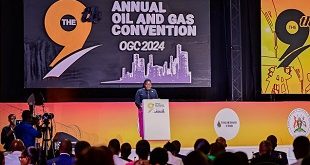In June, the Uganda National Oil Company’s (UNOC) Board of Directors appointed Josephine Wapakhabulo as the first chief executive officer. She is a 40-year old PhD graduate of Information Science.Wapakhabulo is expected to lead the setup of UNOC and manage its transition into a world class oil and gas company to prepare for oil production.
Established under the Petroleum (Exploration, Development and Production) Act, 2013, UNOC is mandated to ensure an adequate, reliable, and affordable supply of quality petroleum products in the country.
But in future, UNOC will be expected to participate in oil production on behalf of the state. The government, according to the existing production-sharing agreements with the oil exploration companies, can participate with between 15-20% in production.
In August, Ernest Rubondo was appointed the executive director of the Petroleum Authority of Uganda (PAU). Rubondo who until recently was the director of the Petroleum Exploration and Production Department in the Ministry of Energy has been heavily involved in the formulation of the country’s legal and regulatory framework including the 2008 National Oil and Gas Policy and the recently enacted petroleum industry legislations. He took on his new assignment at the beginning of September, 2016.
Eight production licences
In late August, the government issued eight production licences to Tullow Oil and Total E & P Uganda B.V in a move that was intended to revitalize the sector.
The government issued five production licences to Tullow Uganda Operations Pty Ltd, the operator of Exploration Area 2 and three to Total E&P Uganda B.V, the operator of EA1.
With the issuance of the licences came the government’s bold statement that they now expect oil production to start around 2020.
Still in August, there was news that the government would issue four oil exploration licences to four new companies; three of which are Nigeria-based.But in a brief presented to Parliament on Dec. 8, Peter Lokeris, the State minister for mineral development said the licensing round has progressed to the stage of negotiation of production sharing agreements (PSAs) with three of the companies.
These include; Armour Energy Limited for the Kanywataba Block, Waltersmith Petroman Oil Limited for Turaco Shallow and Deep Plays and Oranto Petroleum International Limited for the Ngassa Shallow and Deep Plays.
Lokeris said upon conclusion of negotiations this year, the government expects to award a total of five new exploration licences following Cabinet approval. Licensing of more acreage in the country is aimed at expanding the country’s hydrocarbon resource base; enhance sustainability of oil and production and the revenue from oil and gas activities.
 The Independent Uganda: You get the Truth we Pay the Price
The Independent Uganda: You get the Truth we Pay the Price


